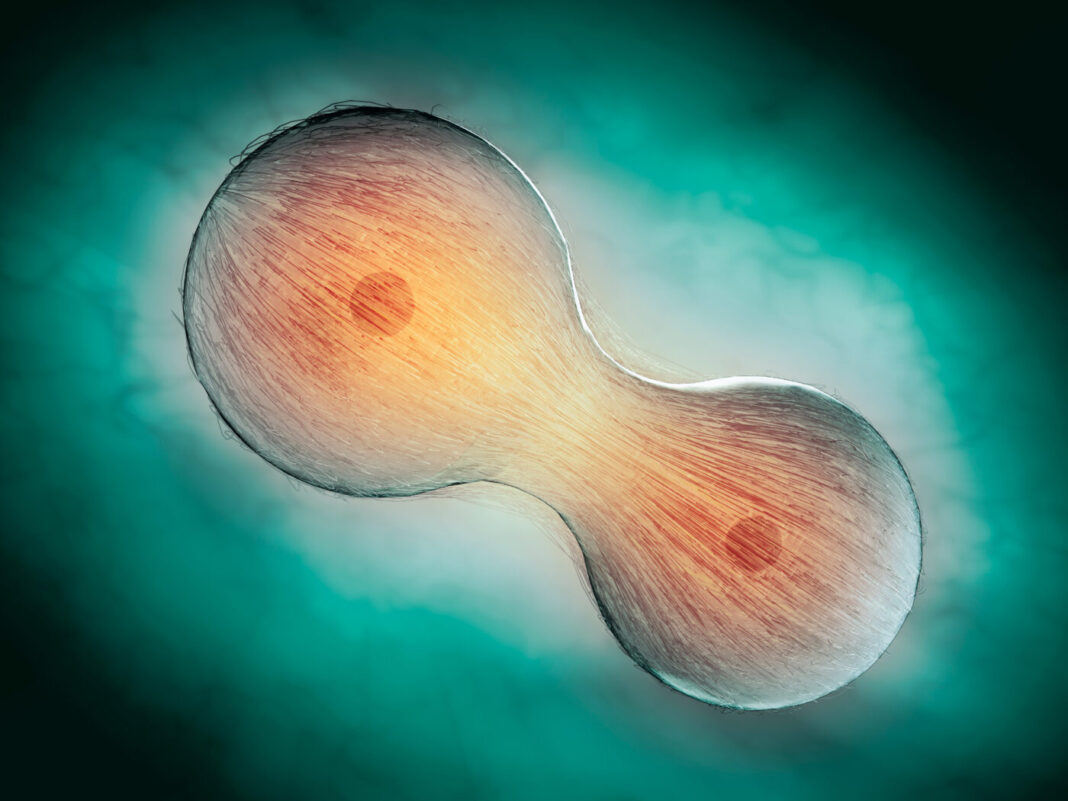Scientists at Heidelberg University and the University of Arkansas for Medical Sciences conducted a comparative analysis to propose cellular pathologies in genetic diseases such as Down Syndrome that are caused by the presence of an extra chromosome, depend less on which specific chromosome is duplicated and more on the presence of an extra chromosomal copy. This alternative approach may open new avenues of understanding Down Syndrome pathology and developing diagnostic tools and therapies. The study was published in a review in the American Journal of Human Genetics on December 1, 2022.
Duplicated chromosomes in all cells, including sperms and ova, are pulled apart by contracting microtubules, toward opposite ends of the cell to ensure each cell ends up with the correct number of chromosomes upon division. Malfunctions in this critical step during cell division can result in cells with an abnormal number of chromosomes (aneuploidy).
For example, Down Syndrome is caused by an extra copy of chromosome 21 (an autosomal trisomy). Usually, chromosomal gains lead to spontaneous abortions or rare live born babies with a range of developmental and pathological defects. However, patients with Down Syndrome have an average life expectancy of 60 years—the highest survival rates of all trisomies.
At present there is no treatment for genetic diseases caused by gain of a chromosome. To uncover therapeutic targets, it is important to identify the source of abnormalities seen in cells carrying extra chromosomes. Until now, most studies on autosomal trisomies have focused on the heightened expression of specific genes on the extra chromosomal copy and its associated pathological ramifications.
An alternative approach would be to compare cellular characteristics and functional consequences of different chromosomal trisomies and identify commonalities. In the current study, the researchers compared molecular consequences of trisomy syndromes in vivo against engineered cell lines carrying various extra chromosomes in vitro to point out several features that are shared in various trisomies. These pathological phenotypes, the researchers contend, might be caused by the presence of an extra chromosome irrespective of the identity of the particular chromosomes, and by extrapolation, the excessive expression of genes present on the extra chromosome.
Maria Krivega, PhD, a developmental biologist at Heidelberg University and lead author of the study said, “Understanding the complexity and general nature of disease phenotypes allows us to see a bigger picture and not get stuck focusing on a single gene, due to its presence on the extra chromosome.”
By looking at the entire cell instead of the effects of single genes, the researchers uncovered fresh insights on trisomy syndromes. Krivega and her collaborators sifted through published datasets of proteins and RNA of individuals with Down Syndrome and compared these to cells generated in the laboratory that carry trisomies of chromosomes 3, 5, 12, and 21. Comparing the in vivo and in vitro datasets, they found that it didn’t matter which chromosome was in excess, the cells all had decreased ability to replicate, survive, and maintain their DNA.
“We were interested to find out why cells with imbalanced chromosomal content—in other words, aneuploid—are capable of surviving,” said Krivega. “It was particularly exciting to me to learn if viable aneuploid embryonic cells have similarities with aneuploid cancer cells or cell lines derived in the laboratory.”
The investigators found that the innate immune response is activated in trisomic individuals and in cell culture models. Earlier studies had shown an increase in interferon signaling in Down Syndrome patients. “These findings point toward elevated IFN signaling and subsequent hyperactivation of autoimmune and inflammatory responses as a general outcome of chromosome gain,” the authors noted.
Earlier studies have noted immune disruptions and increased autoimmunity in individuals with trisomic genetic syndromes on the basis of genetic, epigenetic, and protein changes. In the current study, the researchers show the adaptive T cell immune system was underdeveloped while the innate immune system was overactive in individuals with trisomy 21.
Based on transcriptomic comparisons, the authors noted, “Deregulation of the immune system is not specific to trisomy of chromosome 21, but instead might be a general cellular response triggered by chromosome gain.”
The evidence generated in this study shows that a general cellular response to aneuploidy, in addition to the abnormal expression of specific genes on chromosome 21, contributes to the phenotypes observed in patients with Down Syndrome. “We hope that our work elucidating a complex trisomy phenotype should help to improve such kids’ development,” said Krivega.



